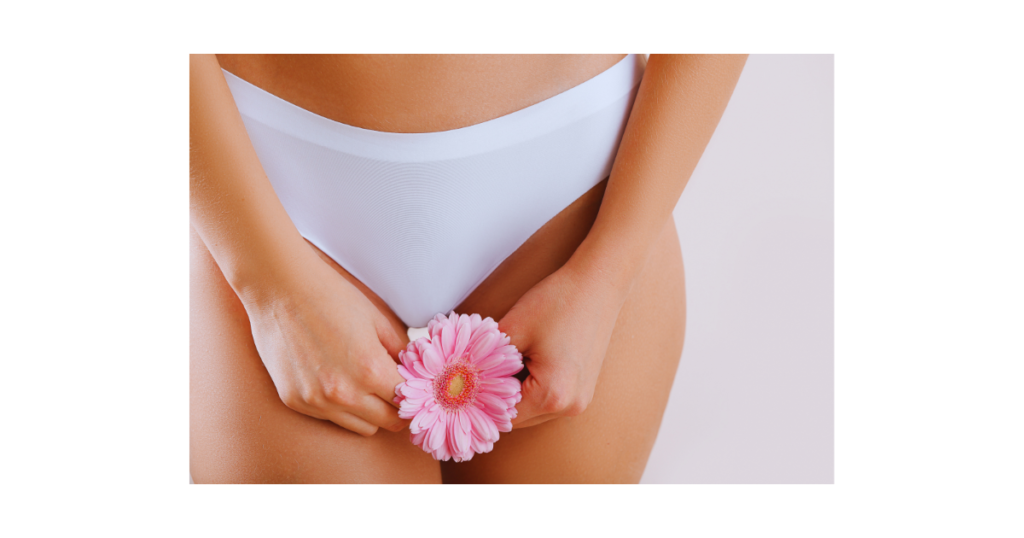Hey there! Let’s talk about something we don’t talk about enough—but absolutely should: feminine hygiene. Taking care of your intimate area isn’t just about feeling fresh; it’s about protecting your health, understanding your body, and feeling confident in your own skin.
Whether you’re starting your period journey, dealing with some unexpected discharge, or just want to understand more about how to keep your vagina clean, this guide has your back. We’ll provide professional advice on maintaining vaginal health, ensuring you follow safe practices and obtain information from trusted sources. Let’s dive into everything from daily habits to dealing with the not-so-fun stuff like bacterial vaginosis or irritation.
Understanding Your Body: What’s Normal, What’s Not

First things first, let’s get clear on a few things: the vagina, vulva, clitoris, and cervix are all part of your reproductive system—but they’re not all the same thing. For example, the vulva is the outer part, and the vagina is the internal canal. Your vaginal discharge is totally normal—it’s your body’s natural way of staying clean by flushing out bacteria and old mucus. Discharge aids in cleaning the vaginal area, providing lubrication, and preventing infections, emphasizing its importance in maintaining vaginal health.
But how do you know what’s normal? Here’s a quick guide:
- Clear or milky discharge? Totally normal.
- Strong odor, itching, or greenish discharge? Time to check with a doctor—it could be an infection like bacterial vaginosis.
Vaginal Discharge and Hygiene
Vaginal discharge is a natural and normal part of the menstrual cycle. It’s your body’s way of keeping the vagina clean and maintaining a healthy balance of bacteria. Understanding the different types of vaginal discharge can help you recognize what’s normal and what might be a sign of an issue.
Daily Hygiene Habits That Actually Help

Keeping your vaginal area clean is simpler than you think. It is crucial to clean the folds of the vulva to prevent the accumulation of contaminants that can affect the microbial balance and lead to infections. The most important rule? Less is more.
✅ DO:
- Use just warm water to rinse your vulva during a shower.
- Wipe front to back after using the bathroom to prevent bacteria from spreading.
- Emphasize the importance of wearing breathable, cotton underwear for personal hygiene, as it helps prevent bacterial growth and promotes cleanliness. Change it daily.
- Let your skin breathe—avoid tight or synthetic clothing for long periods.
🚫 DON’T:
- Use fancy products with fragrances or harsh chemicals.
- Douche. Seriously. Douching throws off your natural pH balance.
- Ignore persistent itching, odor, or irritation.
You really don’t need any special brands or expensive washes. Your vagina is self-cleaning, and trying to over-clean it can actually cause more harm than good.
Period Care: Making Your Cycle More Comfortable

Your menstrual cycle doesn’t have to be a monthly nightmare. The emotional and psychological challenges, such as the fear of leaking blood, can be significant during menstruation. With the right tools and a little self care, it can be a manageable (even empowering!) part of your life.
Choose the Right Protection:
- Pads or sanitary napkins: Great for beginners or light to moderate flow. Historically, pads had to be purchased as part of a pack, and the cost of these packs could make them a significant expense for consumers at the time.
- Tampons: Convenient for active days but be sure to change them every 4–8 hours.
- Menstrual cups or sponges: Eco-friendly and long-lasting options.
Tips for Period Days:
- Change products regularly to prevent odor and bacteria growth.
- Keep an emergency kit in your bag: a pad, fresh underwear, and wipes.
- Don’t forget emotional care—self care during your period also includes rest and treating yourself kindly.
When Things Feel Off: Signs of Common Vaginal Issues

Let’s be honest—sometimes things just feel… off. Maybe you’re noticing a weird odor, painful sex, lower abdomen pain, pain during urination, or a change in your discharge. Don’t stress—it’s more common than you think, and most things are treatable.
Common Vaginal Issues:
- Bacterial Vaginosis: Caused by an imbalance of natural bacteria. You might notice a fishy smell or grayish discharge.
- Yeast Infections: Thick, white discharge with itching and redness.
- Irritation: Can come from laundry chemicals, tight clothing, or scented products. It’s important to use gentle care for sensitive areas of the body to avoid irritation from harsh materials and unnecessary products.
What To Do:
- If symptoms last more than a few days, see a doctor.
- Never self-diagnose—only a medical provider can give a proper diagnosis and treatment.
Debunking Common Myths

There are many myths out there about vaginal hygiene, and it’s time to set the record straight. Let’s debunk some of the most common misconceptions.
Your Personal Routine: Simple Tips for Everyday Confidence
Feeling good down there often translates to feeling good everywhere. Practicing healthy habits for vaginal health and hygiene is crucial and can make a significant difference. These simple habits can help you feel fresh, confident, and comfortable daily:
- Drink water, eat lots of fruits and veggies (yes, what you eat matters!).
- Change underwear after workouts or sweaty days.
- Keep a gentle routine—no need to experiment with every trending product.
- Talk to friends or trusted adults—this is nothing to be shy about!
Frequently Asked Questions (FAQ)
Q1: Is vaginal discharge normal?Yes! Discharge helps keep the vagina clean. It varies during your cycle, and unless it smells bad or causes itching, it’s nothing to worry about.
Q2: Can I use soap down there?Stick to unscented, mild soaps only on the outside (the vulva). The external parts should be washed, but never wash inside the vagina as it has a self-cleaning mechanism.
Q3: What causes vaginal odor?Odor can be affected by your period, sex, sweat, or infections like BV. A slight odor is normal, but strong smells may need medical attention.
Q4: Is douching safe?Nope. It can actually lead to infections and mess with your natural balance.
Q5: What should I do during puberty?Puberty brings a lot of changes like discharge, hair growth, and periods. Stay informed, build a hygiene routine, and ask questions—you’re not alone!
Additional Resources You’ll Love:
- Mayo Clinic: Vaginal Health and Hygiene
- Planned Parenthood: Vaginal Discharge 101
- Cleveland Clinic: Understanding Bacterial Vaginosis
- UNICEF: Menstrual Hygiene Around the World
- Always: Puberty & Period Tips for Girls
- Journal of Vaginal Care: Comprehensive Information on Vaginal Health, Community Issues, and Cultural Aspects in Healthcare
All the Links, All in One Place:
Need more info? Here are all the helpful links mentioned above: Mayo Clinic, Planned Parenthood, Cleveland Clinic, UNICEF, and Always.
Final Thoughts
Every woman and girl deserves to feel confident and informed about her body. Feminine hygiene isn’t about being perfect—it’s about being kind to yourself, staying healthy, and making choices that feel good for you. Women face unique hygiene needs and challenges, especially regarding menstrual products and societal issues. Start with the basics, listen to your body, and don’t be afraid to ask questions.
You’ve got this 💪





